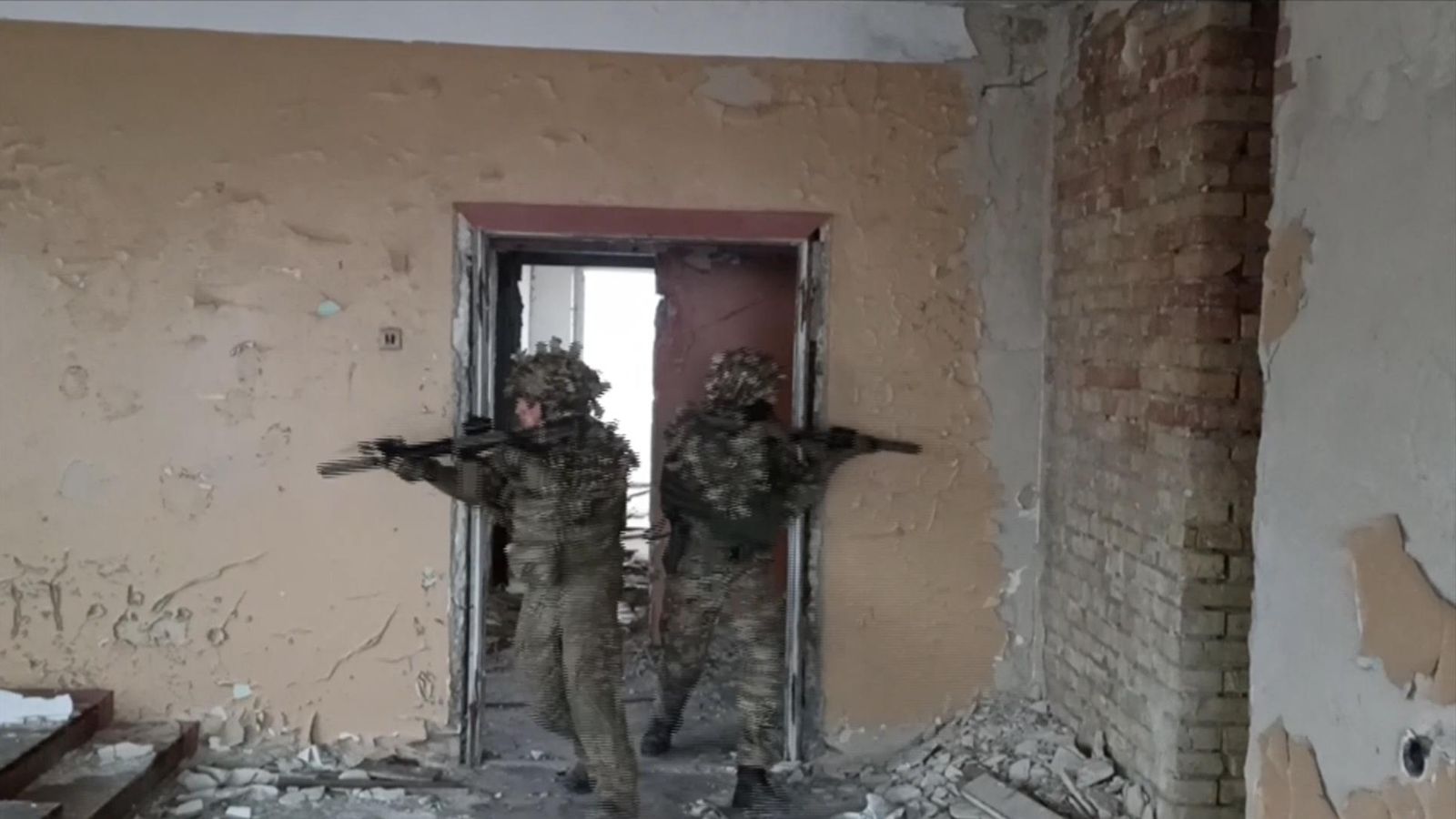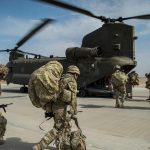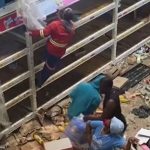The instructor held up a drone fitted with cameras to a classroom of cooks, architects and office workers who have taken time out from civilian life in Ukraine to gain soldiering skills.
A commander asked the group of about 50 army reservists who would like to learn how to fly the small drone as part of preparations to protect their city – Kyiv – should Russia invade.
Several of the volunteers showed an interest. All keenly followed the tutorial.
These part-time soldiers spend each Saturday absorbing military skills, switching between classroom training inside a large hall and running around outdoors with rifles.
The man in charge, Colonel Serhiy Grom, an experienced military veteran, said there had been a rise in the number of people wanting to join his battalion over the past year as the threat of a new Russian offensive grew.
“A big part of them are young people,” the 50-year-old told Sky News in an interview.
“The ‘young blood’ … are people who didn’t serve in the armed forces for different reasons but they passed our combat training… I must say that the young people who come – it’s a pleasure to work with them because they understand why they came.”
Russian submarines threatening undersea network of internet cables, says UK defence chief Sir Tony Radakin
Polar Preet: British army officer becomes first person to reach the South Pole on foot in two years
UK to deploy 140 soldiers to Poland and team to Lithuania amid Belarus border tensions
His territorial defence group, 130 Battalion, comprises some 320-330 reservists, aged between 21 and 56.
Such units are designed to support the regular armed forces in the event of a Russian attack – by protecting key locations like council buildings and bridges.
Please use Chrome browser for a more accessible video player
It is a military threat that many fear could become a reality if diplomatic dialogue this week between Russia and the US as well as the rest of the NATO alliance fails.
In the training hall, one young man – his face hidden by a beige-coloured balaclava – proudly displayed his military equipment, which he said he bought himself, from a fold-up gun and camouflage body armour to first aid kit and a water-proof notepad.
“We are getting ready, we are getting prepared, we are training, we are learning,” said the man, 21, a college student, who wanted only to be identified by his call-sign “Jaeger”.
He claimed he had been doing military-style training for the past seven years, despite his young age, and was willing to defend his country if the call came.
“Yes I would [fight],” he said.
“Jaeger”, an only child, said he had even had difficult conversations with his parents about what it might mean if he did go to war given the threat of being killed in action.
“I already had a conversation with my relatives. We already have those really hard talks.”
He and a friend, also a reservist, showed video footage they had taken of members of the battalion training in woodland last November.
The images showed troops, rifle in hand, entering and clearing a disused building.
“Jaeger” said everyone had a choice to make should Russia threaten Ukraine with more military action following the 2014 annexation of Crimea and ongoing conflict in the east.
“There is always someone who will leave the country, someone who will just stay at home and some who will protect,” he said. “So there is a decision on what to choose and I with my good friend have chosen to be protectors.”
A number of troops in the battalion have had previous military experience.
Follow the Daily podcast on Apple Podcasts, Google Podcasts, Spotify, Spreaker
But others, like Marta Yuzkiv, 51, a clinical researcher and mother-of-three, chose to sign up last year as a novice.
“I am completely a civilian person so all these basic military things you need to learn – how to work with your colleagues in some danger, what to do, how to operate rifles, practical medicine, all these basic military things,” she said
Asked if she was ready to fight if necessary, she said: “I am not sure that somebody could be ready for fighting. Maybe professional military could do it. Definitely I am scared but I know exactly I don’t want to live under occupation so I will fight.”






















